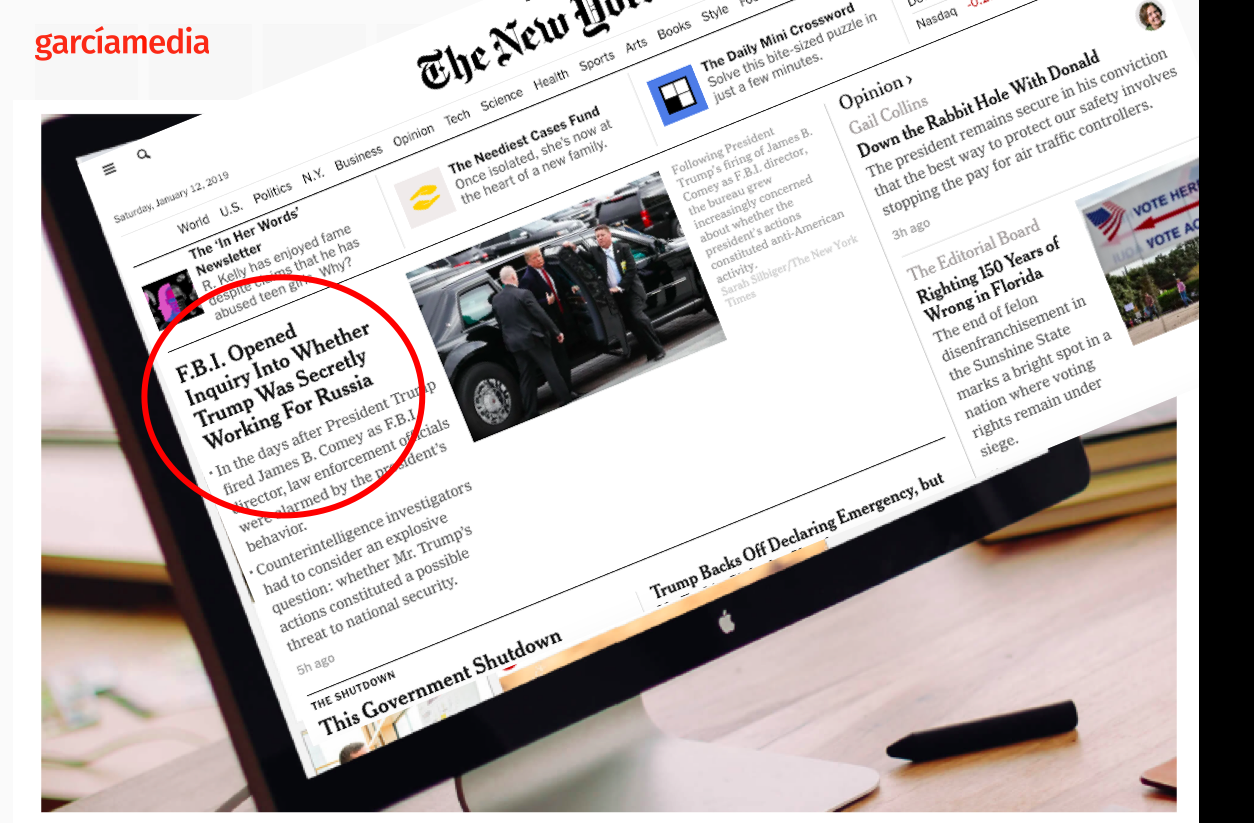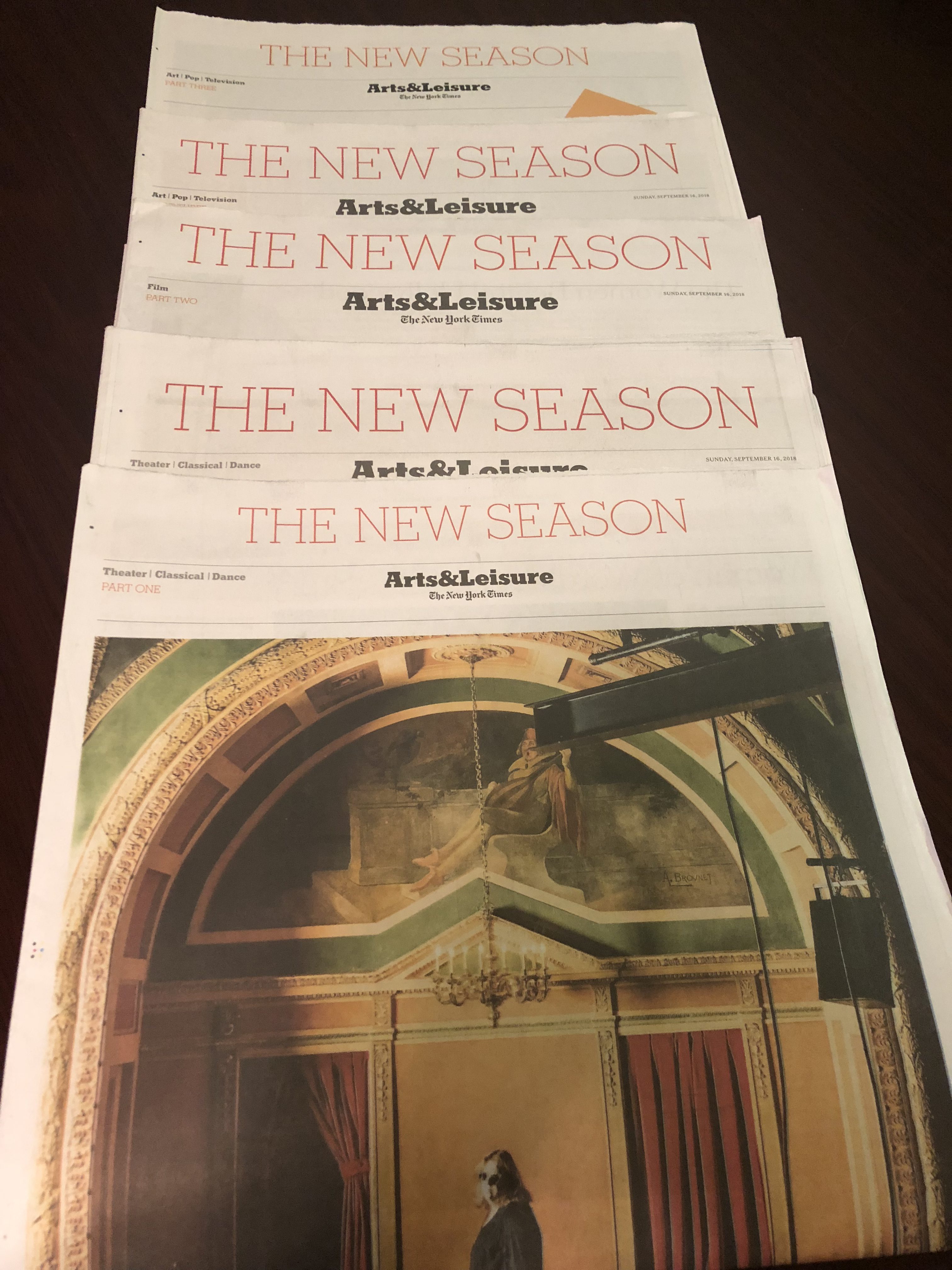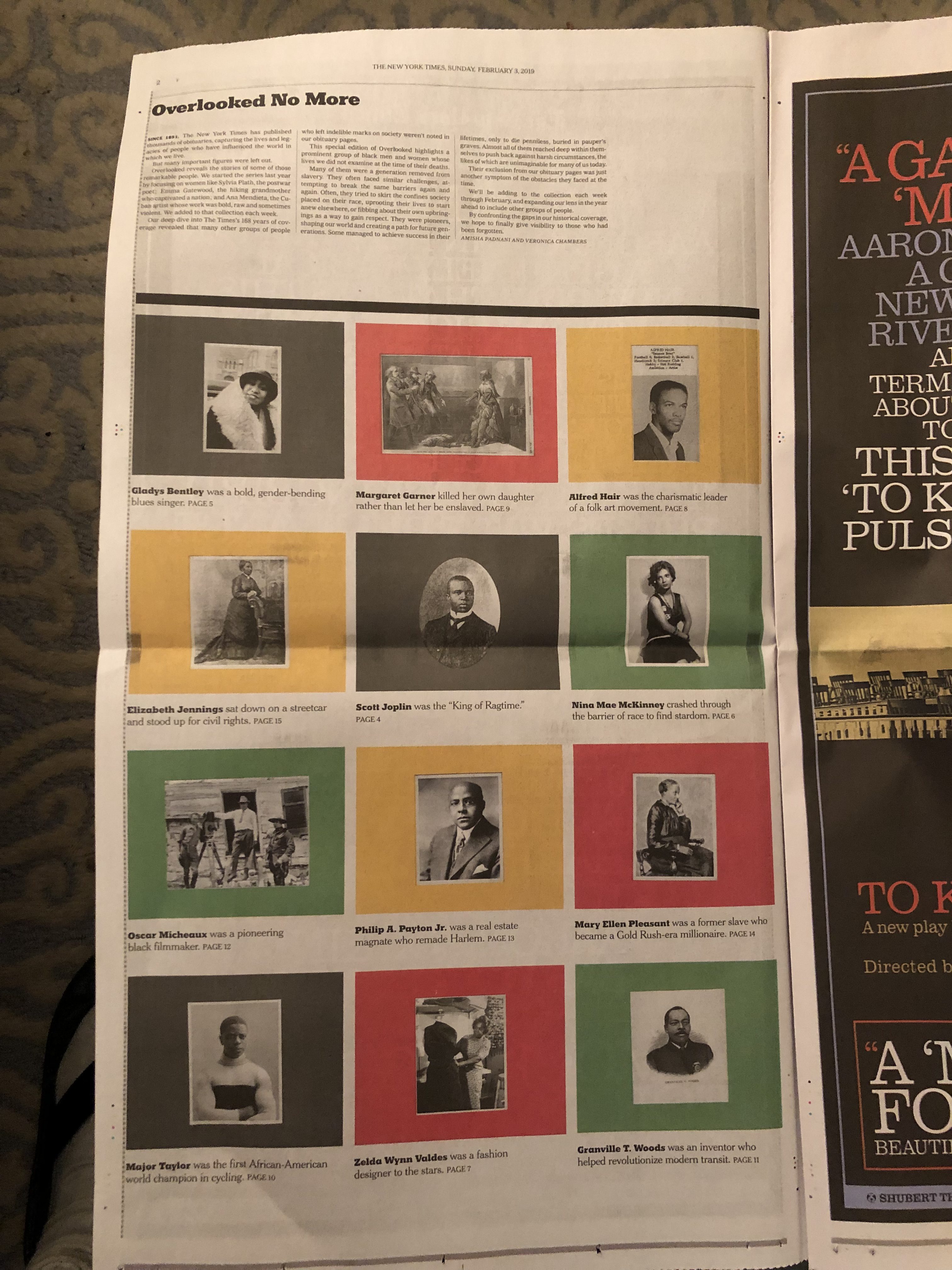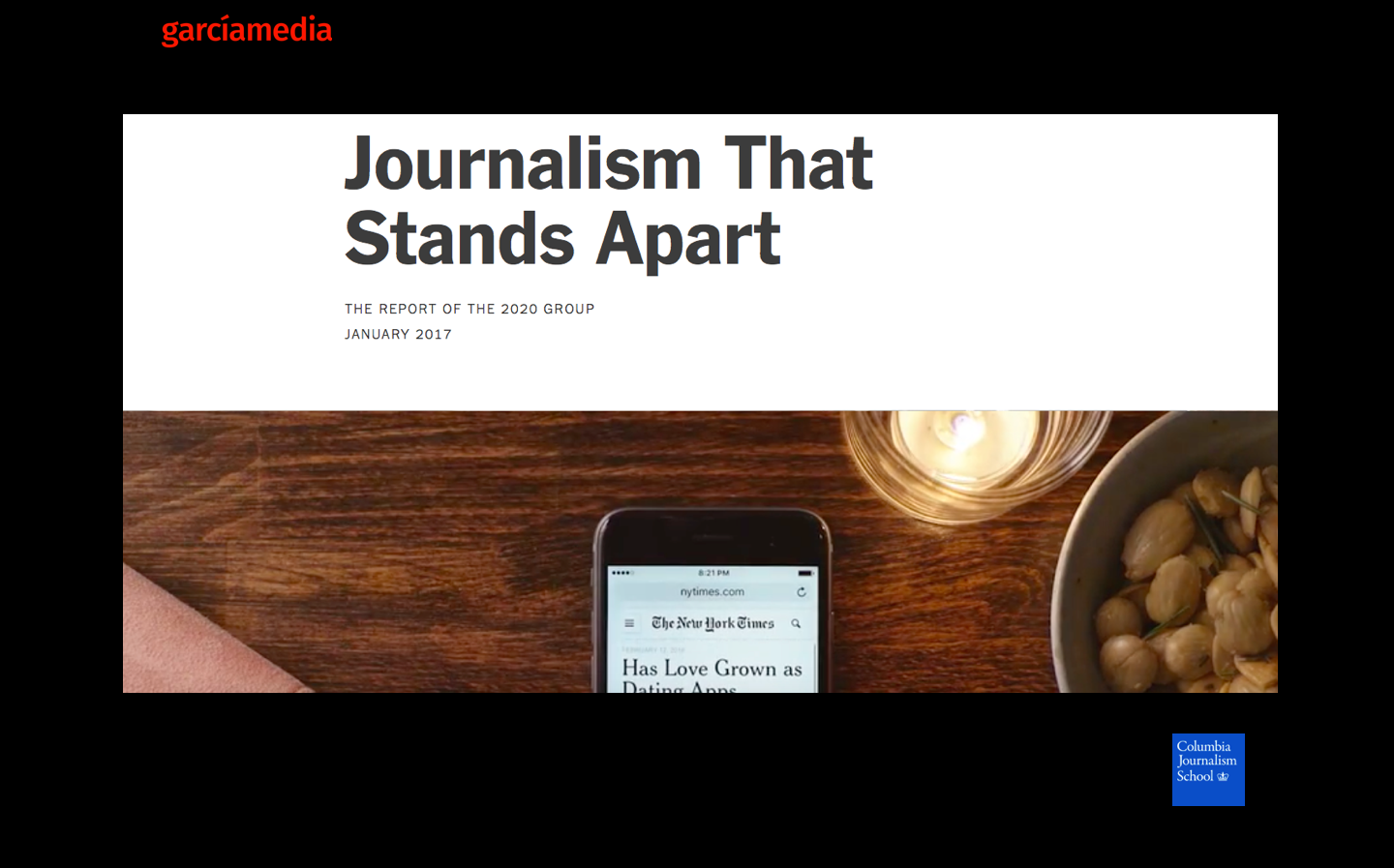As a reader
I read about The New York Times’ incredible story of success with a digital audience and, while I am happy, I am not at all surprised.
Here are some of the amazing numbers:
–The New York Times Company generated more than $709 million in digital revenue last year.
–The total number of paid subscriptions for digital and print reached 4.3 million, a high.
–Online subscription revenue gained nearly 18 percent to reach $400 million in 2018, while digital advertising rose 8.6 percent, to $259 million.
—Digital advertising surpassed print advertising for the first time in the fourth quarter, jumping 23 percent to $103 million.
-Last year the company added 120 newsroom employees, bringing the total number of journalists at The Times to 1,600, the largest count in its history.
As a resident of New York and faithful subscriber to everything New York Times, I can vouch for the robust journalism that comes my way daily from the Times’ editors.
-Investigative journalism equaled to none
-Cooking
As a person who likes to cook I love the Cooking app.
-Running
As a runner I enjoy the tips from its Running Experts.
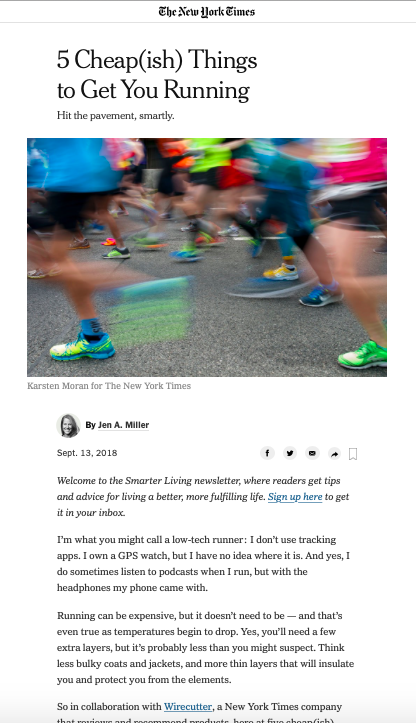
-Podcast
The Daily Podcast is extremely popular with many in the audience.
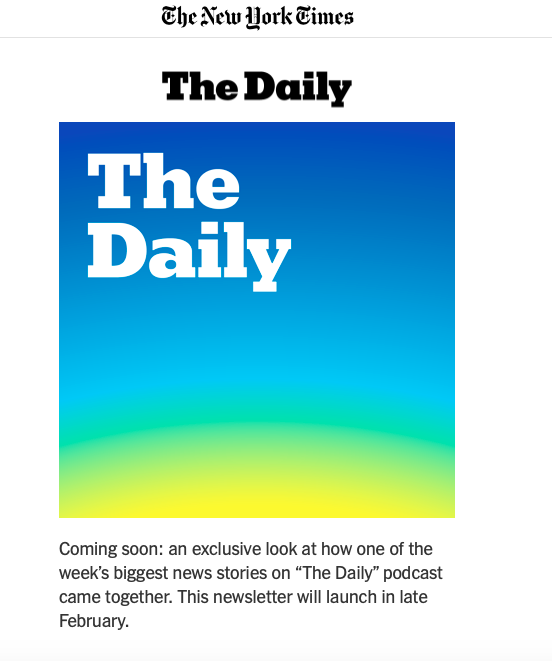
-Push notifications
The push notifications are few, but meaningful. If the Times sends a push notification, I stand on attention.
-Newsletters/Briefings
The morning and evening briefing are a mini newspaper that tells me what I need to know. But there are briefings on a variety of subjects, including politics.
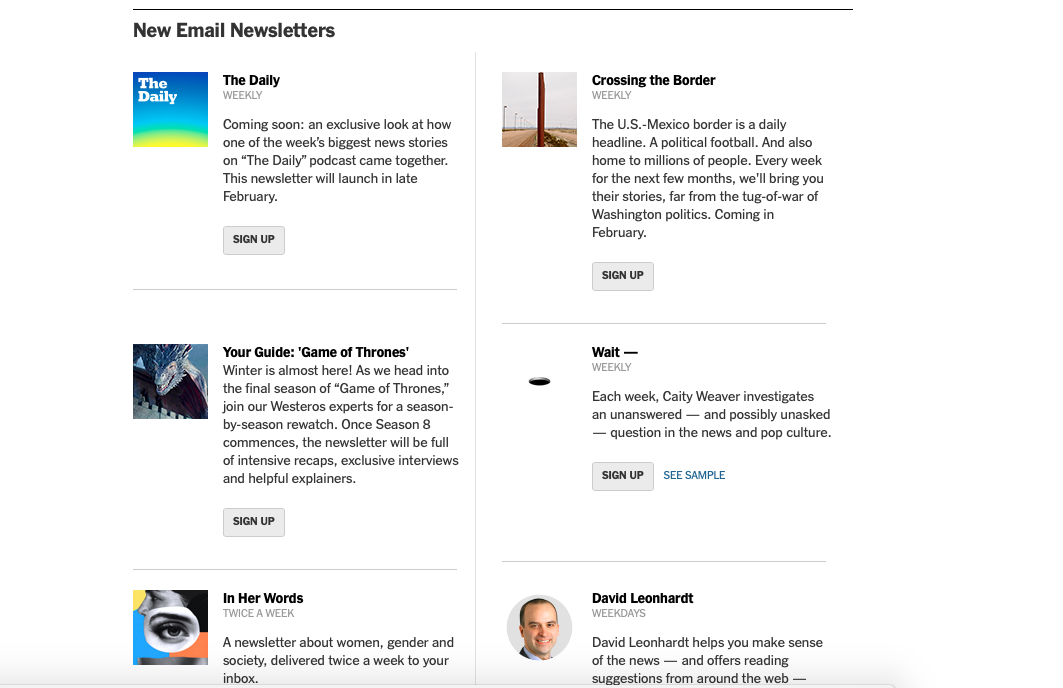
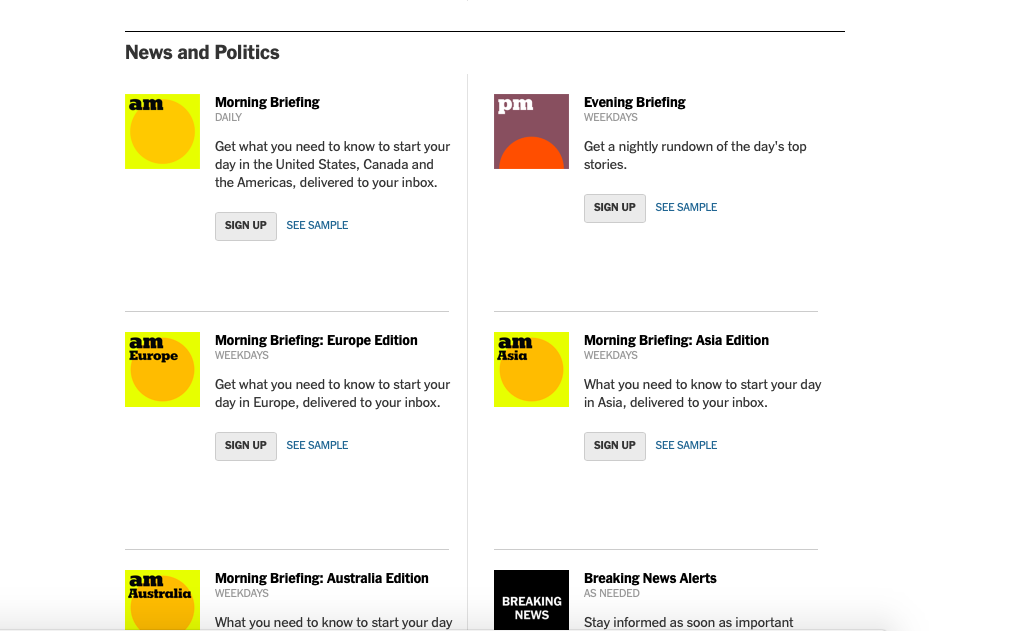
-Sunday print edition
The weekend edition in print starts arriving at my doorstep in the Upper East Side on Friday. I look forward to Sunday morning, and it is, I admit, about the only print edition of anything that I read consistently.
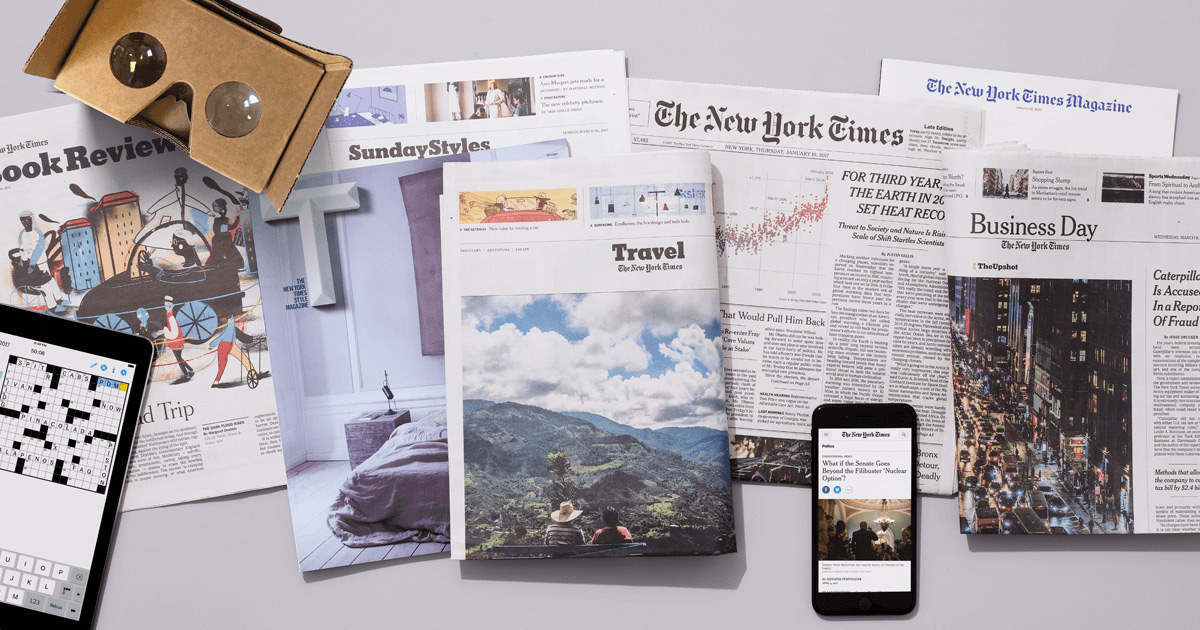
-Online
The updates on stories with www.nytimes.com are part of my news ritual several times a day.
-Arts/Leisure (and Theater)
Then there is the Arts coverage, and Theater specifically: a must for me.
-Obituaries
Nobody does obits like The New York Times, and we find ourselves reading long narrative obits of people we never heard of.
New content appears when we least expect it, such as the series Overlooked, honoring African Americans whose contributions to society were not chronicled at the time of their deaths. Never too late, say the Times editors.
These are the reasons that make a reader like me to subscribe to the Times, again and again.
As a media person
If I truly love The New York Times as a reader, I also dissect it daily for what it provides me as a media practitioner.
Here is a legacy publication—and what great legacy the Times has! However, the management of the Times has not let its rich history interfere with its present and future.
The print edition gets richer, and we have seen such developments as a newly refurbished Pages 2-3, offering glimpses of what’s in the paper, and bringing the digital daily Briefings to print. Bravo.
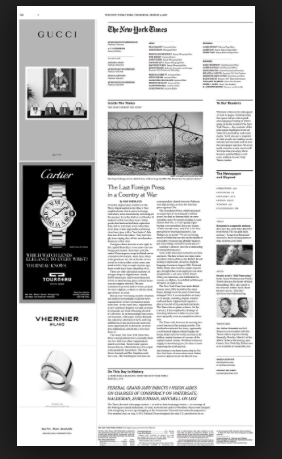
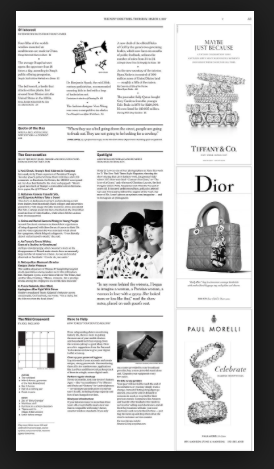
Also, since the Watching feature (what to find on television tonight) became so popular, there is a print version of it. Hats off.

The Kids supplement once a month is a magnificent way of bringing content (including current events and a puzzle) to a younger and difficult to attract audience of children.
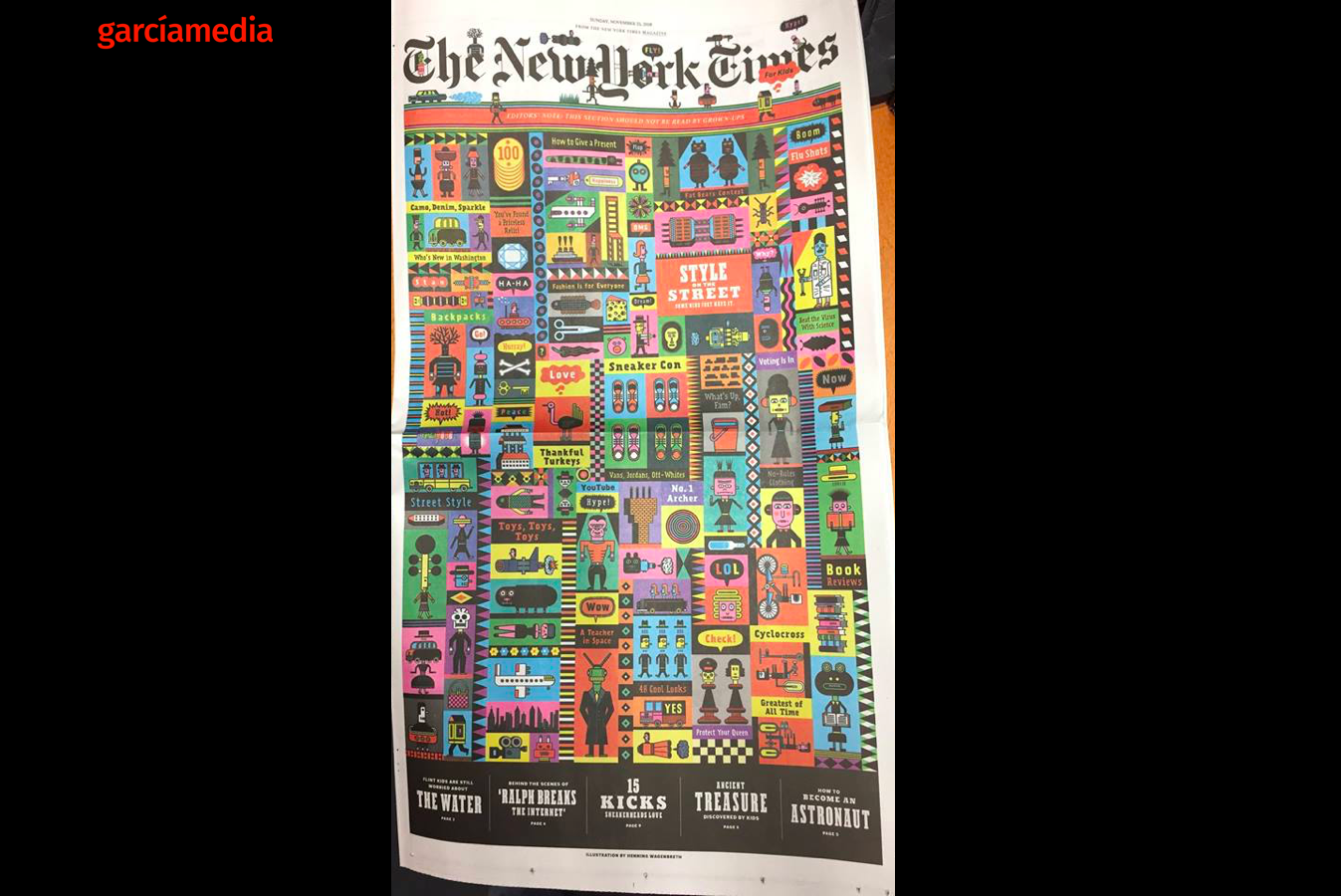
As I have said often, the Kids supplement is for children of all ages.
The Sunday Magazine is addictive with its in-depth narratives and a variety of topics that surprise and delight. The design is exquisite and there is always something interesting to learn from the designers’ use of type.
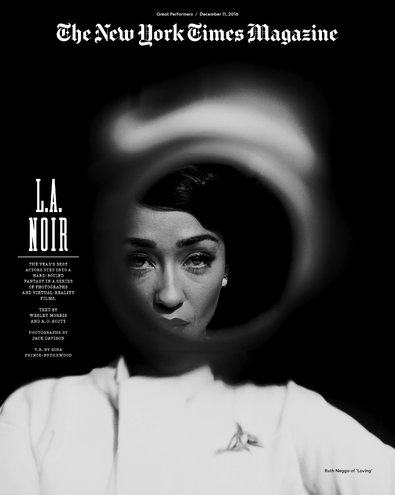
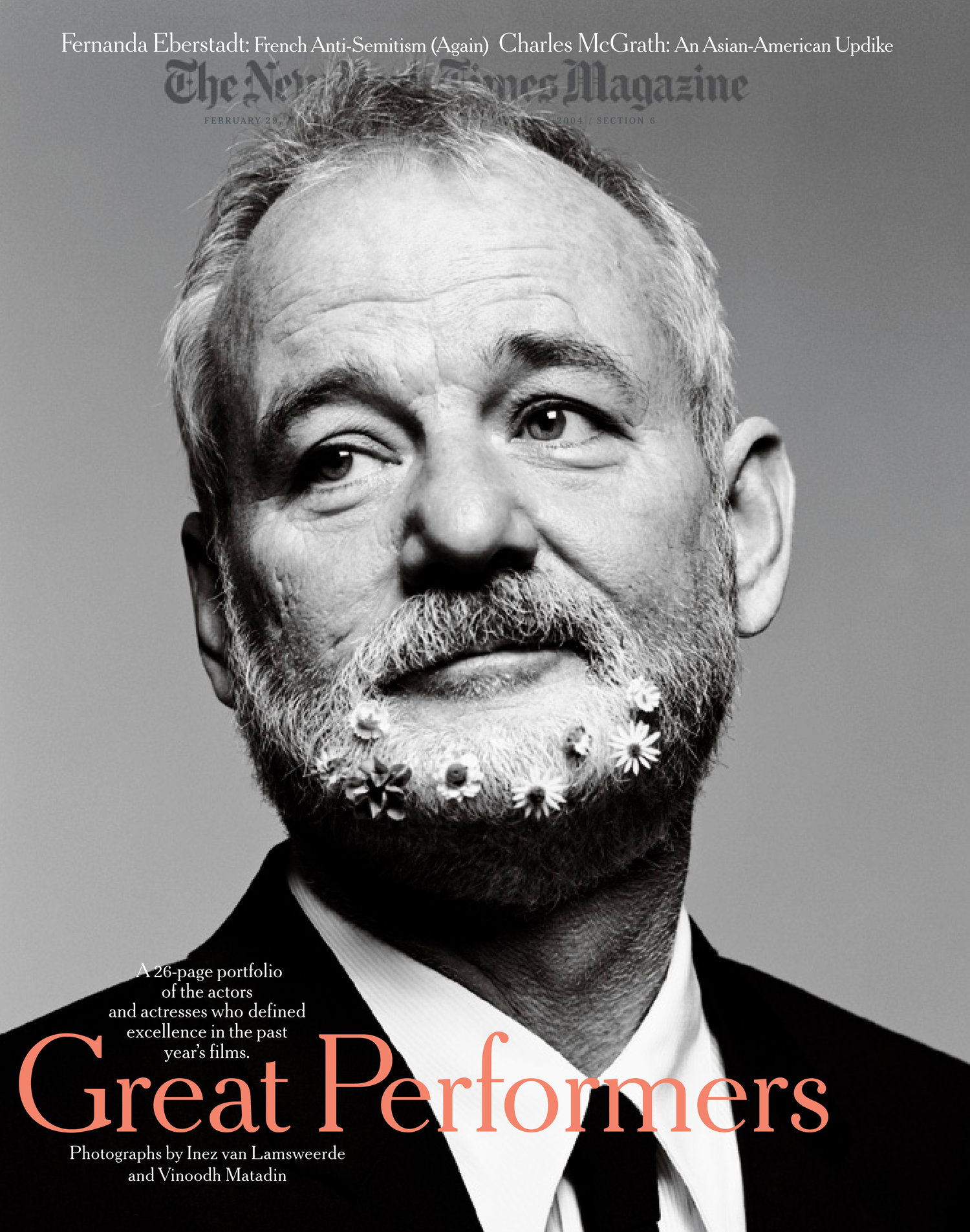
More importantly, it is all about transformation and strategy: The Times has continued to innovate in such areas as visual storytelling, with perhaps the most extensive catalog of stories told lineally, created for the way we read on mobile phones. I believe that it was this document from January 2017, Journalism That Stands Apart, that set the wheels in motion at the Times for the type of visual storytelling that would follow:
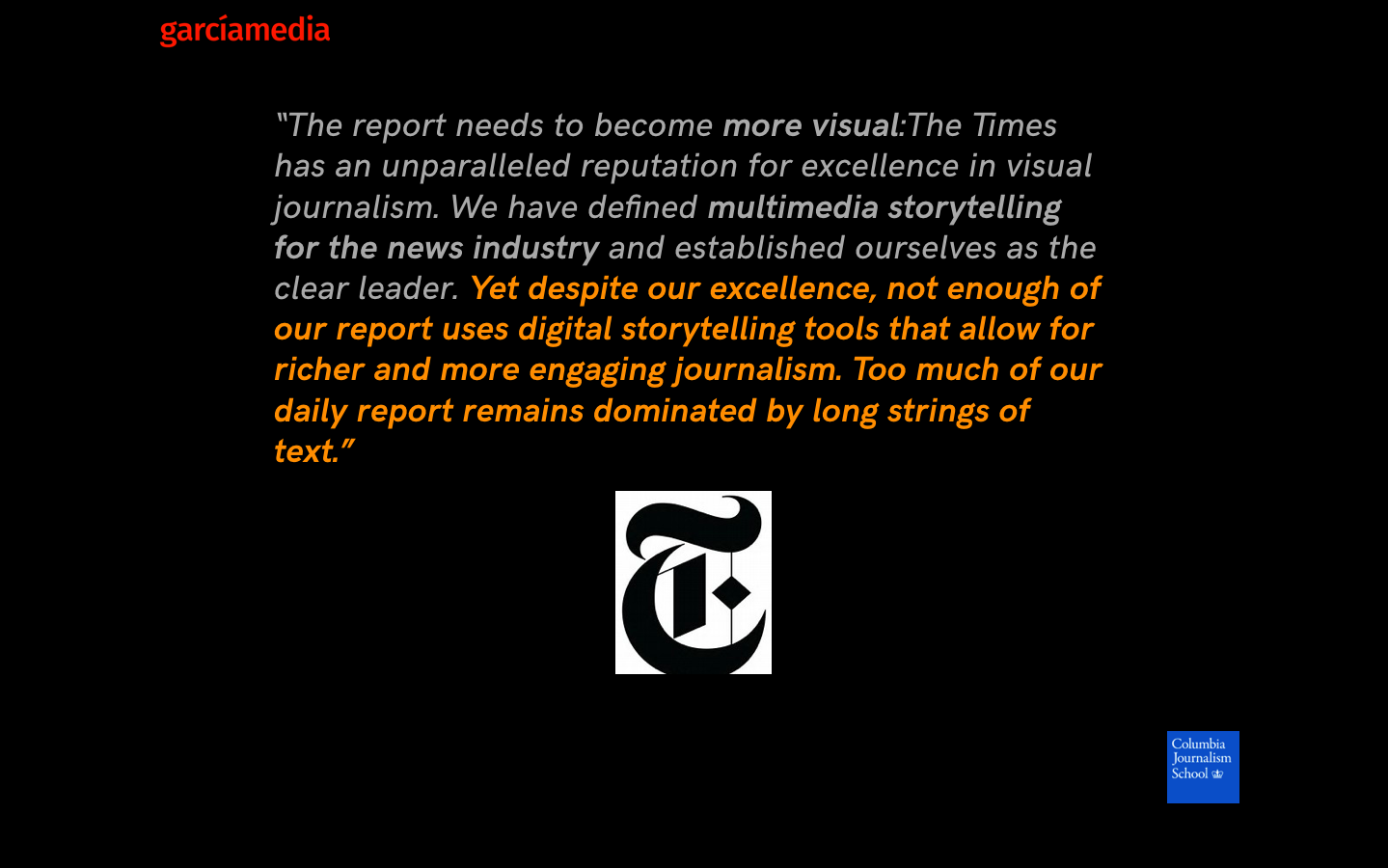
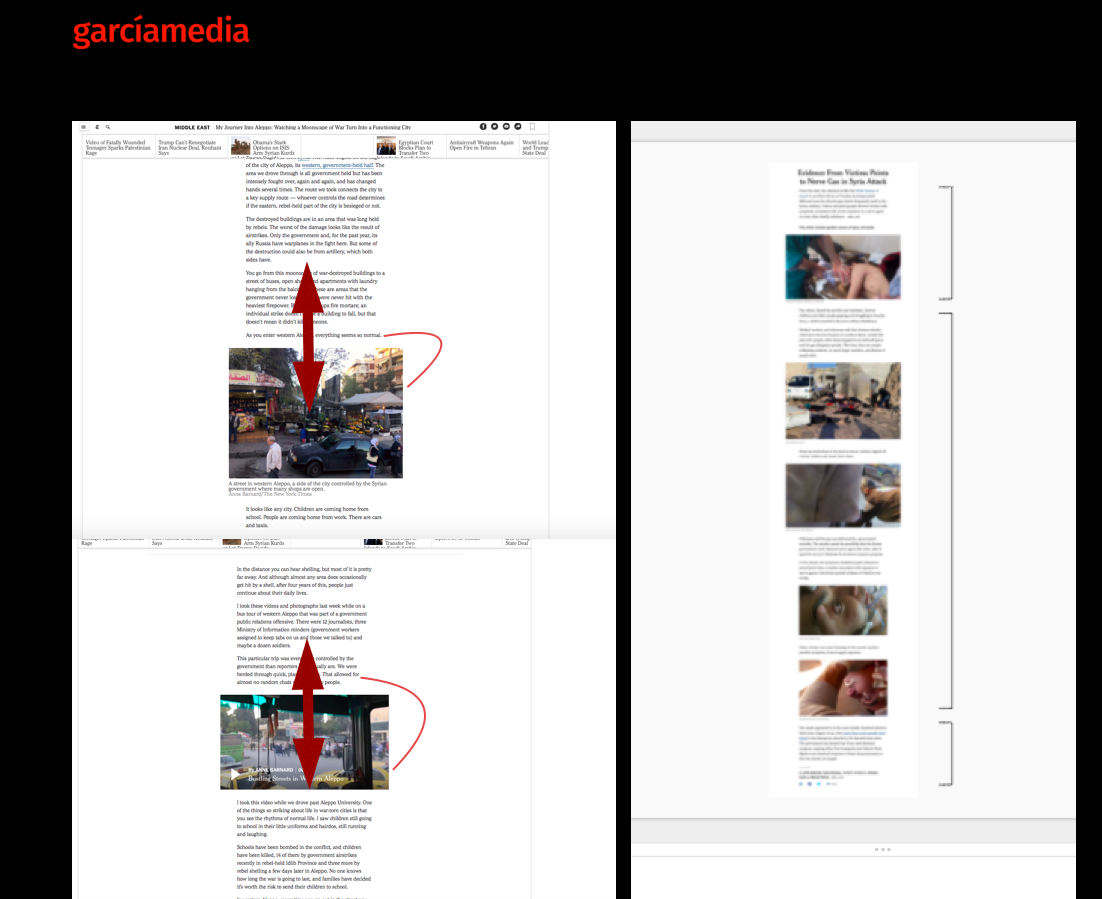
Story structuring is also imaginative and full of surprises. Not all stories are told with headlines and text. Sometimes, the story is told almost as if it was a chat between two friends.
So, the Times of today is not only a great product journalistically, it is also the best textbook I know of for those of us in the media who wish to transform our thinking, take a look at various forms of storytelling and who can see that the gray lady is not so gray anymore. It is cool. It is hip. It is trendy. It’s deserving of its revenue fortunes.
And, Mr. Trump, I don’t think you can refer to this publication as “the failing New York Times” anymore.
.The facts tell us differently
Read all about it:
https://www.nytimes.com/2019/02/06/business/media/new-york-times-earnings-digital-subscriptions.html
TheMarioBlog post #2989



